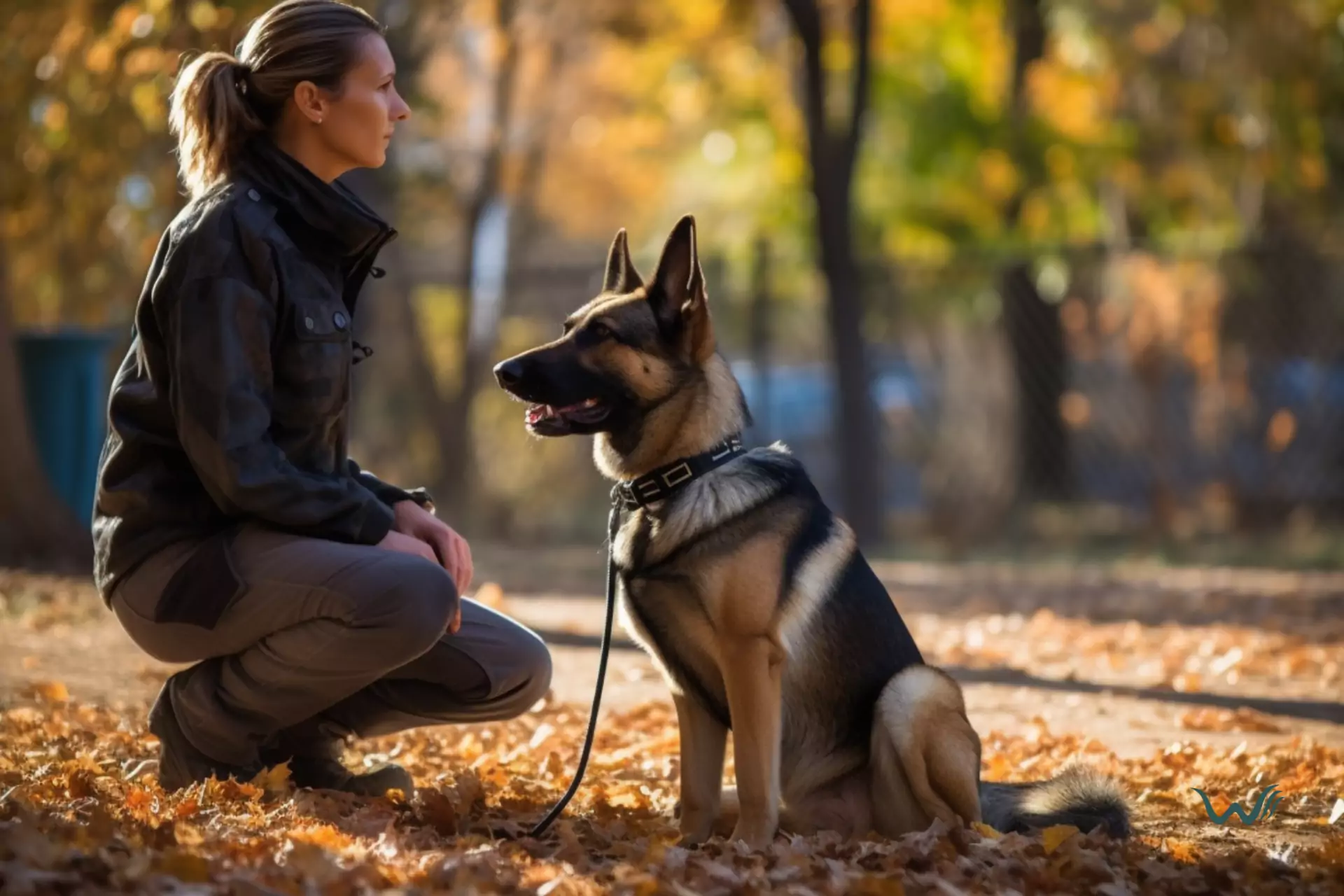

The Importance Of Socializing Puppies And How To Do It
by Ayesha Aziz
Last updated: April 18, 2024
Verified and Approved by:
Angela Morris,
MSW, LCSW
Fact Checked

Are you a proud new puppy owner? Congratulations! Now, it’s time to ensure that your furry friend grows up to be a well-rounded and happy dog.
One of the most crucial aspects of puppy care is socialization. Socializing your puppy not only helps them develop into a confident and friendly dog, but it also sets the foundation for a balanced and harmonious relationship with other animals and people.
In this article, we will explore the importance of socializing puppies and provide you with practical tips on how to do it effectively.
When it comes to socialization, timing is everything. The early weeks and months of a puppy’s life are a critical period for learning and forming connections. It is during this time that their brains are most receptive to new experiences and stimuli.
By exposing your puppy to a wide range of people, animals, and environments during this sensitive period, you are helping them build positive associations and develop crucial social skills. So, don’t wait! Start socializing your puppy as soon as you bring them home.
Key Takeaways
- Socializing puppies is crucial for their development and overall well-being.
- Starting socialization between 3 and 14 weeks of age is optimal.
- Gradual exposure to new environments and people is important for preventing fear and anxiety.
- Enrolling in obedience classes or puppy playgroups provides controlled environments for social interaction and learning social skills.
Understanding the Benefits of Puppy Socialization
Now that you know all about the importance of socializing puppies, let’s dive into the benefits you and your furry friend can experience together.
Socializing your puppy is not just about ensuring they can play well with other dogs; it also has numerous benefits for their overall development and well-being. By exposing your puppy to different environments, people, and animals at a young age, you’re helping them become well-adjusted and confident adults.
One of the key benefits of puppy socialization is the development of good manners and positive behavior. When your puppy interacts with other dogs, they learn how to communicate and understand social cues. This helps them develop good manners and prevents them from becoming overly reactive or aggressive in the future.
Socializing your puppy also helps them build resilience and confidence. By introducing them to new experiences and allowing them to explore their surroundings, you’re helping them develop a sense of security and adaptability. This will make them more confident in various situations and less likely to develop fear or anxiety later in life.
In addition to these behavioral benefits, socialization also helps prevent behavioral problems in the future. Emotional support animals who aren’t properly socialized may develop fear or aggression towards other dogs, people, or even new environments. This can lead to behavioral issues such as aggression, fear-based reactions, or excessive barking.
By socializing your puppy early on, you’re giving them the tools to handle new experiences and interactions positively and confidently. This will greatly reduce the chances of developing any behavioral problems down the road.
In conclusion, socializing your puppy is not only important for their well-being, but it also has long-lasting benefits for their behavior and overall development. By exposing them to various environments, people, and animals, you’re helping them become well-adjusted and confident adults.
So, grab your furry friend and start exploring the world together!
When to Begin Socializing Your Puppy
Before starting their socialization journey, it’s crucial to determine the optimal time to begin exposing your puppy to new experiences and interactions. Starting too early can overwhelm them while starting too late can lead to missed windows of opportunity for learning and development.
Here are some key factors to consider when determining when to begin socializing your puppy:
- Age: The ideal age to start socializing your puppy is between 3 and 14 weeks. This is known as the critical socialization period, during which puppies are most receptive to new experiences and can form positive associations with a wide range of people, animals, and environments.
- Vaccination status: It’s important to ensure that your puppy is up to date on their vaccinations before exposing them to potentially infectious environments. Consult with your veterinarian to determine when it’s safe to start socializing your puppy.
- Health: Make sure your puppy is in good health before beginning their socialization journey. If they are sick or recovering from an illness, it’s best to wait until they are fully recovered before exposing them to new experiences.
- Temperament: Each puppy is unique, and some may be more cautious or shy than others. Take your puppy’s temperament into account when deciding when to start socialization. Some puppies may benefit from a slower, gradual introduction to new experiences, while others may be more outgoing and ready to explore the world from an early age.
- Environment: Consider the environment in which your puppy will be socializing. Choose safe, controlled environments where you can ensure their safety and minimize potential risks.
Remember, the optimal time to begin socializing your puppy is during their critical socialization period, between 3 and 14 weeks of age. By starting early and following the guidelines above, you can set your puppy up for a lifetime of positive social interactions and experiences.
Introducing Your Puppy to New Environments and People
When introducing your puppy to new environments and people, it’s crucial to provide them with positive experiences that promote socialization. This is an important step in their development and will help them become well-adjusted and friendly adult dogs.
Start by gradually exposing your puppy to new environments, such as parks, busy streets, or even different rooms in your house. Take them on short walks or outings, allowing them to explore and interact with their surroundings. It’s important to keep these experiences positive and rewarding, using treats or praise to reinforce good behavior.
Introducing your puppy to new people is also an essential part of their socialization. Begin by inviting friends or family members over to meet your puppy in a calm and controlled environment. Encourage your guests to approach your puppy gently and allow them to sniff and interact at their own pace. It’s important to emphasize positive interactions and reward your puppy for calm and friendly behavior.
Gradually expose your puppy to a variety of people, including different ages, genders, and ethnicities, to ensure they are comfortable and accepting of everyone they may encounter in the future.
Remember, socializing your puppy is not only beneficial for their development but also for the well-being of your community. A well-socialized dog is less likely to exhibit fearful or aggressive behaviors, making them a joy to be around.
By providing your puppy with positive experiences in new environments and with different people, you’re setting them up for a lifetime of happiness and companionship.
So get out there, explore the world together, and watch as your puppy blossoms into a confident and friendly adult dog.
Socializing Your Puppy with Other Dogs
One effective way to socialize your puppy with other dogs is by setting up playdates with friendly and well-behaved canine companions. This allows your puppy to interact and learn from other dogs in a controlled and supervised environment.
When choosing playmates for your puppy, make sure that they are of similar size and energy level to ensure a balanced play. Introduce the dogs in a neutral area, such as a park, and let them sniff and interact with each other at their own pace. Observe their body language and intervene if there are any signs of aggression or discomfort.
Encourage positive interactions by praising and rewarding your puppy for good behavior during the playdate. By exposing your puppy to other dogs in a positive and controlled way, you’re helping them develop important social skills and building their confidence in interacting with other animals.
In addition to playdates, you can also consider enrolling your puppy in a puppy socialization class. These classes provide a structured setting for puppies to interact with each other under the guidance of a professional trainer. They often include supervised play sessions and socialization exercises that help puppies learn appropriate behavior and communication with other dogs.
These classes also allow you to learn more about dog behavior and training techniques, which can be valuable in raising a well-socialized and well-behaved dog.
Continuing Socialization Throughout Your Puppy’s Development
Continuing to socialize with your puppy as they grow is crucial for their development. Just like humans, dogs are social creatures and need to learn how to interact with others to be well-rounded and happy. By exposing your puppy to different environments, people, and animals, you are helping them build confidence, develop good manners, and prevent behavioral issues later on.
As your puppy grows, it’s important to continue exposing them to new experiences. Take them on walks in different neighborhoods, visit parks with different sights and sounds, and introduce them to new people and animals whenever possible. This will help them become comfortable in various situations and prevent them from becoming fearful or anxious in new environments.
Additionally, consider enrolling your puppy in obedience classes or puppy playgroups. These settings provide a controlled and supervised environment for your puppy to interact with other dogs and learn proper social skills. It’s also a great opportunity for you as the owner to learn how to handle your puppy in different situations and reinforce positive behaviors.
Frequently Asked Questions
How do I know if my puppy is ready for socialization?
Wondering if your puppy is ready for socialization? Look for signs like curiosity and confidence. While some puppies may be shy at first, with proper guidance and patience, they can thrive in social settings.
Can I socialize my puppy with older dogs?
Yes, you can socialize your puppy with older dogs! It’s a great way for them to learn proper doggy behavior and build confidence. Just make sure the older dogs are friendly and patient.
Should I be concerned if my puppy is shy during socialization?
Don’t worry if your puppy is shy or timid during socialization. It’s important to give them time and space to adjust. Remember, just like humans, dogs have different personalities and some may be more reserved than others.
Are there any risks or potential dangers associated with puppy socialization?
Yes, there are some potential risks in puppy socialization. Overwhelming experiences can traumatize your pup, causing fear and aggression. However, by gradually introducing new people, animals, and environments, you can minimize these risks and ensure positive socialization.
Certify Your Emotional Support Animal Today

Why You Can Rely on Us?
At Wellness Wag, we believe your pet deserves care rooted in both science and compassion. Each article is carefully researched, written in clear language for pet owners, and then reviewed by qualified professionals to ensure the information is evidence-based, current, and practical for real-life care. Our goal is to help you feel confident in making informed decisions about your pet’s health and well-being.
Reviewed by
Angela Morris, MSW, LCSW
Angela is a licensed clinical social worker with 20 years of experience in patient advocacy and community mental health. She has assisted numerous clients with ESA evaluations and brings a deep understanding of disability accommodations, ensuring that all information is accurate, supportive, and practical.

Written by :
Ayesha Aziz
Last Updated :
April 18, 2024










